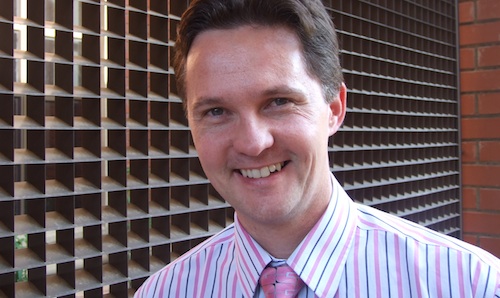
Internet Solutions is betting big on telecommunications infrastructure, with plans to participate in a wireless spectrum auction later this year that could result in it building a national wireless broadband network.
MD Derek Wilcocks says the company, which is a division of Dimension Data, is considering building the network in as many as 25 of SA’s towns and cities using a technology called long-term evolution (LTE). LTE is the successor technology to the third-generation wireless networks deployed by MTN, Vodacom, Cell C and 8ta.
Wilcocks says it’s too early to know how much Internet Solutions will invest in the network, but based on 2010 estimates by the company, it could spend as much as R2bn to R3bn over a period of years. The amount of investment that will be required will be firmed up only once the Independent Communications Authority of SA (Icasa) has provided more details of an upcoming spectrum auction and set out how bidders will be expected to invest in infrastructure in rural and other underserviced parts of the country.
An investment proposal will then be sent to the Didata board for approval.
It appears likely that if Internet Solutions gets the go-ahead to bid for spectrum and is successful, it will use LTE technology. “A year ago, we would almost certainly have used WiMax, but by the time the spectrum auction happens, I certainly think we could use LTE,” Wilcocks says. “There appears to be a lot more weight behind LTE.”
Internet Solutions has no plans to compete directly in the consumer market, preferring to deal with business customers, but it will sell wholesale capacity on the network to consumer-facing Internet service providers with which it has partnered. The company already provides wholesale bandwidth to Internet service providers such as Axxess and Afrihost that provide connectivity to consumers over Telkom’s broadband digital subscriber lines. A wireless network would give these providers another connectivity option for their customers.
Wilcocks says Internet Solutions would prefer not to invest in its own networks, but is being forced to because of the high cost of bandwidth from wholesale operators like Telkom. If it were able to get access to national backhaul, for example, at lower rates, it would not have to invest as much in infrastructure. But he says at current market prices it makes business sense for it to build its own fibre and wireless networks. He describes the cost of leasing national backhaul links as “unacceptably” high.
Internet Solutions is also a one-third shareholder in FibreCo Telecommunications, a consortium that plans to spend billions of rand on a national fibre-optic network that will connect the country’s major towns and cities to business customers and to undersea cables such as Seacom and under-construction West African Cable System. FibreCo investors are Internet Solutions, mobile operator Cell C and Convergence Partners, a company controlled by Didata SA chairman Andile Ngcaba.
Wilcocks says to remain competitive in the enterprise market — and given that its main rivals are businesses that are owned by telecoms operators such as MTN and Vodacom — Internet Solutions has to invest in underlying network infrastructure.
“A few years ago, it would have been inconceivable for us from a licensing and economic point of view, but the entry into SA of independent cable operators and operators like Cell C … create opportunities for us to enter into partnerships that make these investments very viable.”
Wilcocks believes the demand for bandwidth will continue to surpass even the most optimistic expectations as e-commerce, video-on-demand, cloud computing and other services continue to drive demand for data from businesses and retail consumers.
“We see a situation where 100 or 1 000 times more bandwidth will be required to meet the needs of businesses and consumers,” he says.
Construction of the FibreCo network will begin soon. The consortium is at an advanced stage of selecting suppliers, after which trenching will begin. Specialist firms have been contracted to help FibreCo understand the complexities involved in building the network, such as gaining access to private land, running fibre over natural obstacles like rivers and mountain passes, and obtaining the necessary environmental assessment clearances.
Wilcocks expects the first components of the FibreCo network will be switched on within the next 18-24 months. The focus initially is connecting the major metropolitan areas and providing connectivity to undersea cables at Mtunzini in KwaZulu-Natal and Yzerfontein in the Western Cape.
On Icasa’s upcoming frequency auction — in the 2,6GHz and 3,5GHz bands — Wilcocks says Internet Solutions has invested a lot of time modelling the spectrum and considering various options.
But he warns that the company won’t bid for access to the spectrum at any cost. “It really depends on universal service obligations and the price of the spectrum. There is a point where we can’t justify the investment.”
Wilcocks says Internet Solutions wants to provide always-on connectivity to businesses. It expects to build wireless infrastructure in 17-25 metropolitan areas, including smaller towns such as Polokwane, Upington and Kimberley. Universal service requirements may also result in it expanding the network into more far-flung parts of the country, though Wilcocks admits this will “make the business case more challenging”. “But we are not averse to the idea.”
He says Internet Solutions has already begun talking to potential partners that operate in remoter parts of the country. “If the licence conditions require us to go into underserviced areas, we will work with those partners to come up with a model for those areas.” — Duncan McLeod, TechCentral
- Subscribe to our free daily newsletter
- Follow us on Twitter or on Facebook




